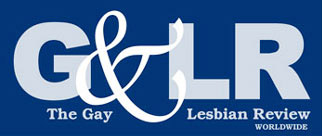When I mentioned to a friend recently that I was writing an article for The Gay & Lesbian Review, the Moscow writer—who keeps his sexual orientation hidden from his fellow literati—sounded concerned. “Aren’t you afraid to be published in a ‘minority magazine’? For me this would be out of question,” he said. His fear that publishing in a gay/lesbian journal would somehow stain his spotless literary reputation is typical of Russian gay writers, many of whom are still, if not totally in the closet, in a deep fog of confusion. Nevertheless, things have changed since Soviet times, and gay writers in Russia now have somewhere to turn. Indeed gay magazines and journals—as well as organizations and clubs—have been springing up.
As with other enterprises in Russia, gay and lesbian publications come and go. The majority of LGBT periodicals that flourished during and after Gorbachev’s regime are now extinct. One publication that stands out for its quality is the gay literary almanac RISK, which dates back to 1995. RISK is published in Moscow by the critic and poet Dmitrii Kuzmin, who prides himself on catching all the “big fish” in contemporary Russian gay literature in his journal’s net.
Even though the majority of the magazine’s contributors are gay people, RISK does not try to project the image of a magazine “for gays only” but aims at a wider literary audience. Unlike some literary magazines in Russia, RISK provides an outlet for women of letters as well as men. (In many Russian journals, prose writing is dominated by men, while poetry is where women hold their own, apparently because poetry is seen as elusive and indifferent to material things, qualities traditionally associated with women.) Some women who’ve appeared in RISK include the emerging poet Natalia Starodubtzeva and the former expatriate media diva Linor Goralik, who left Russia for Israel and later returned to Russia. The latest issue of RISK has a collection of gay and lesbian poems translated from English. Among the poets are June Jordan and Elana Dykewomon.
Some of the prose writers in Russia emulate the “stream of consciousness” style of the underground gay writer Evgenii Haritonov (1941-1981), while others write more traditional narratives exploring gay and lesbian love. Then there are the novels of Marussia Klimova, who breathes life into déclassé transsexuals and artsy queer bums with a vigor that’s reminiscent of Dostoevsky. Drawing from real life, one of her recurring protagonists is a Russian man who does impersonations of Marilyn Monroe.
Lesbian literature, unlike gay male literature, is experiencing rather hard times. On most Russian lesbian websites you can find Marina Tzvetaeva and Anna Akhmatova listed as “major modern lesbian poets,” even though both are long dead and both were probably bisexual. The problem may be that a lesbian literary tradition has never really been established in Russia. Fortunately, quite a few non-Russian lesbian writers have been translated into Russian, and their works outnumber home-grown lesbian novels. In addition, quite a few nonfiction works on gender and sexuality—including those by such feminist scholars as Laura Engelstein, Eve Kosofsky Sedgwick, and Judith Butler—have been translated into Russian.
There are virtually no magazines expressly for lesbians, and those that do exist are not considered “literary” by critics. Ostrov, a magazine with a small circulation published by lesbian enthusiasts in Moscow—cultural life is blooming in the capital, but not elsewhere—is worth mentioning. “It’s a magazine for family reading,” says its editor, Olga Gert. “Ostrov is needed for lesbians themselves,” she continued. “We don’t pretend to reach the level of world literature. This does not mean that lesbians can’t produce their own Shakespeare. Ostrov is not a place for literary ambitions; it is a place for psychological support. It’s a form of therapy. Call it bibliotherapy, if you’d like.” Some women writers whose talent is recognized in non-lesbian literary publications are abstaining from publishing their writing in Ostrov because of the stigma associated with homosexuality in Russia. In addition, lesbian activists keep a gay and lesbian archive in a private Moscow apartment in which diaries, memoirs, and other archival materials are stored. Occasionally they host readings that provide necessary psychological comfort and help foster a sense of community.
Russian émigrés, having come from a country that’s historically mistrustful of homosexuals, have brought many of their attitudes to the U.S. Recent immigrants tend to be quite hostile toward gay people, and their newspapers are full of discussions about the “sin” of homosexuality. It is for this reason that many gay and lesbian émigrés remain deeply closeted about their homosexuality in print. An exception can be found in liberal San Francisco, where the new Gay and Lesbian Center has hosted “open mike” events for gay and lesbian writers. But while Russian writers in the U.S. will undoubtedly acculturate over time to the relatively open attitudes here, those living in the mother country still have a way to go to establish a visible and buoyant gay and lesbian literary tradition.
Margaret Meklin, a native of St. Petersburg, is a Russian writer living in San Francisco. She often addresses gay themes in her prose.





